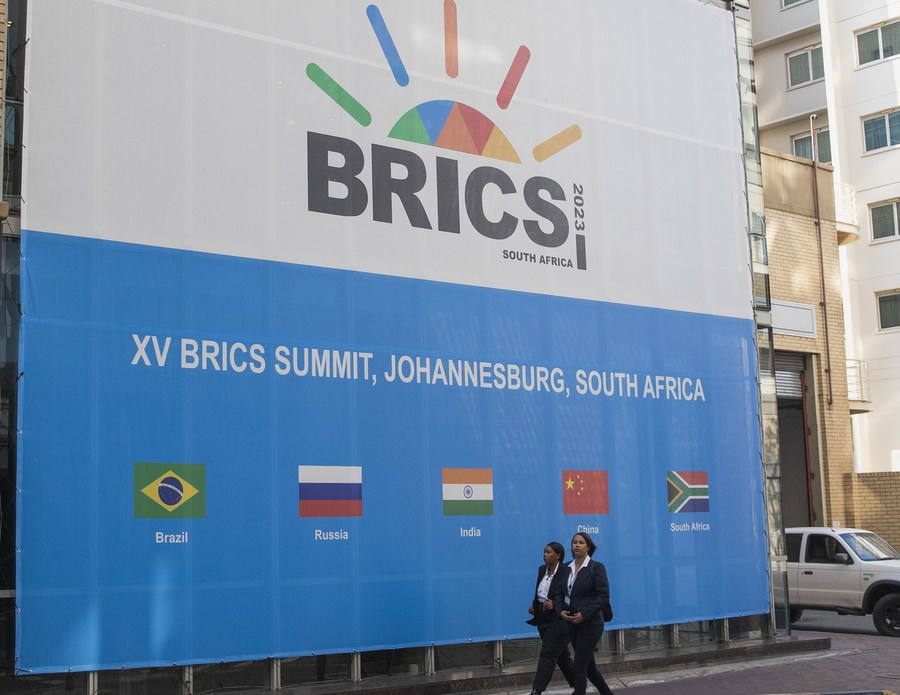
By Tatiana Molina
When Jim O’Neil, chief economist at Goldman Sachs, coined the term BRIC in 2001, referring to Brazil, Russia, India and China as economies of the future, perhaps he had no idea that, created in 2006, the members of this acronym they would open it up to the entry of new countries and would also create distrust for the states of the so-called First World. In 2011, during the third summit, South Africa formally joined the group. The XV BRICS Summit, held in Johannesburg in August 2023, meant the birth of BRICS+ (or plus) with the entry of countries that differ in size, economy and development, but in unison when it comes to interest in participating in global issues.
The new members – Saudi Arabia, Egypt, United Arab Emirates, Ethiopia and Iran (Argentina was also accepted, but the recently elected president Javier Milei rejected the country’s entry), – validated in January 2024 expand the area of activity and cooperation of the initial partners plus South Africa and reveals important elements: geopolitical action, strength in oil and gas production, mineral resources available and increased commercial cooperation with the promotion of infrastructure.
The union of these states is very reminiscent of the Movement of Non-Aligned Countries formed after the Second World War and gathered at the Bangdung Conference in 1955, at a time marked by the dispute between the United States and the Soviet Union. What they aim to do today is the promotion of measures of economic growth and sustainable socioeconomic development that include guidelines such as creating more effective commercial logistics, replacing the dollar, transferring technology, among others. BRICS plus aims to be part of the international system of nations with the concern of interfering in the established rules so that they are not hostage to the dictates of developed countries.
There is an American and European narcissism that associates everything that happens in the world with an attempt to overthrow their powers, democracy, labor rules, the status quo, private companies and everything else that is linked to ideals established as certain independently. the history of each country and region. It doesn’t matter the historical and cultural background of almost five thousand years, as in the case of China. The colonial past doesn’t matter, as in the case of Brazil, South Africa and India. Even some countries have tried to establish relations with the West, such as Russia, where the identity issue raised by the Occidentalist school tried to get closer to Europe than to Asia. Bóris Yeltsin, in the 1990s, actively sought a closer connection to the West. Vladimir Putin is pragmatic but, as a great admirer of Peter the Great (a staunch Westernist) stated in his autobiography: We Russians are part of European culture. In fact, we derive our value from precisely this and wherever our people live, whether in the east or in the south, we are Europeans.
It still doesn’t matter about the reestablished relations between China and the USA in 1972, which even followed a close friendship between President George W. Bush and leader Deng Xiaoping. It doesn’t matter Brazil’s history of good relations with the United States and Europe since forever and the fact that the last war in which Brazil was involved was more than 150 years old (Paraguay War, 1864 – 1870).
This is not to deny that a bloc made up of continental-sized countries, one of which is the second or even the first economy in the world (depending on the economic metrics used) does not aspire to a strategic position on Zbigniew Brzezinski’s board. Or that India, with a strong technological sector, and Russia, with its military power and (never used) nuclear bombs, also do not want a prominent space in the world economy. Brazil is the furthest behind when it comes to access to cutting-edge technology. With more state planning and less government planning, there is still hope.
Not every country craves hegemony. It’s a lot of work, there are a lot of expenses involved and the need to interfere in external matters when in fact what many want is to look inside and worry about the demands they already have to face. These are border issues, maritime disputes, ethnic conflicts, the proximity of military blocs to their borders and another flurry of topics such as the creation of new jobs, unemployment, social security and concern for the environment.
Compared to a person who constantly reports suffering persecution from everything and everyone, thus becoming a victim of envious people who want his disgrace, the United States and Europe resort from time to time to the institutions of the United Nations, the media, public outcry and popular appeal to report their suffering lives in rich countries. Anyone who doesn’t write according to your playbook is automatically seen as a potential threat.
This text was originally published in China Hoje magazine. Click here, sign up to our community, receive a free digital subscription and access the full content.
*Tatiana Molina is a professor at the Chengdu Institute, Sichuan International Studies University, Sichuan, China. Deputy coordinator of the Center for Studies on Contemporary China and Asia – CEA/NEA.
Source: http://www.chinahoje.net/o-brics-e-o-narcisismo-ocidental/

